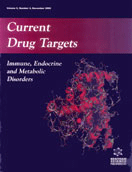Abstract
Asthma is among the world's most common severe lung disorders, affecting
one-third of the world's population with incidence ranging from 4.9% to 12.7%.
Around 3.5 million people die annually due to the worse health effects of asthma. Men
(6.2%) have been seen to be less prevalent than women (10.4%) internationally. As a
product of inflammation and super sensitivity, asthma is a multifactorial condition with
symptoms such as cough, shortness of breath, wheezing, and chest pain. There are a
number of agents that may be responsible for the development of asthma.This includes
air pollution, obesity, bacteria, viruses, fungi, flu germs, dust, pollen, tobacco,
smoking, exercise, depression, anxiety, allergic agents, physical and emotional stress.
Depending on the susceptibility of the individual, asthma showed mild to serious
results. For a deeper understanding of disease pathogenicity, mechanistic mechanisms
should concentrate on a number of aspects like metabolic abnormalities, molecular
genetics, inflammatory asthma complexity, etc. Commensal micro biota is one of the
main factors that cures disease and has a major role in balancing the immune system in
the gut and lung. In addition to the foregoing, potential indicators include serum IgE, a
number of bloodstream eosinophil or levels of sputum eosinophil, FeNO (fractional
exhaled nitric oxide), and serum periostin are presently employed in the asthma
diagnosis. The two key therapies available on the basis of disease severity for patients
are oral corticosteroids and bronchodilators. However, steroid-based therapy has
certain side effects, such as elevated BP, adrenal suppression, and bone weakening.
Due to this, we should target non-steroid medications, including anti-cholinergic
medication (Tiotropium) and biological therapy. For serious asthma patients, various
new medications (such as Anti-IL-4, Anti-IL-5, Anti-IL-13, and Anti-IgE therapy) have
been used and found effectiveTo select the right medication and system for a better treatment plan, asthma patient requires proper review such as guidance, constancy,
advice, drug alert, refill warning, notification warning, etc.
Keywords: Allergy, Anti-Cholinergic, Asthma, Biomarkers, Bronchodilators, Corticosteroids, Immunesystem, Inflammation, Micro biota, Wheezing.






















